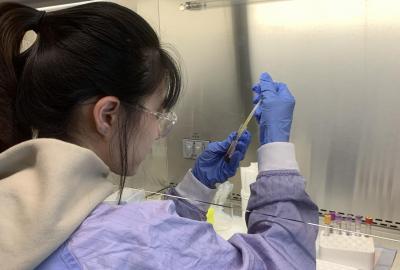
After completing two research co-ops, I decided to seek a position that would offer industrial experience for my last placement. In research co-ops you are more focused on getting the ‘stuff’ done while in company your attention is on how groups of people get ‘stuff’ done. So I was overwhelmed when offered the position of engineer intern at Kodak, a company most well-known for its film and imaging products. Based on my experience at Kodak, I would like to share some advice to co-op students who are interested in working in a company setting.
1. Tour the Company and Talk With Your Co-workers
In the first couple days of working at a company, usually new hires are given some simple tasks to start. This includes setting up your email, access cards and other accounts that you would encounter in your work.
It is important to both acquaint yourself with these basic tools to get started with your work and to tour your work surroundings. One way to start is to make good use of your lunch hour by touring the company. By exploring the company in advance, you can avoid asking questions like “Where are the washrooms”, when you should know the answer to this by the second week. Another aspect of getting to know your work surroundings is getting to know the people at your work. By starting a short conversation with your co-workers, you usually learn a few useful things to share that were not shared during the first day of work welcome presentations from things like company work style to the existence of an ‘after-hours candy stash’.
2. Always Ask Questions
When you get assigned a task, you might stumble over certain concepts/terminologies/ideas that your supervisor was trying to convey to you. You might think asking too many questions is a sign of incompetence but believe me, your supervisor would most likely prefer that you ask questions over making mistakes due to a misunderstanding. Your supervisor will also expect that you ask questions because you are new and not familiarized with even the simplest things your co-workers were exposed daily.
3. Embrace the Differences
It is natural to want to dig into work almost immediately and make good use of your skills, but the definition of productive work is quite different between the company and school work. For example, in school design projects we were given little constraints. Our minds could flow with ideas or crank numbers in long equations to optimize the results. But in companies lots of decisions are made upon constraints like cost, availability, previous designs, and approved supplier. For example, when designing a mechanical part you always try to modify an existing similar part from the database first before approaching some supplier you found online or trying to machine your own. In a company setting, cost is a very important factor behind decisions in product development and they come in the form of not just numbers, but time and resources.
4. Stay Positive
Once in a while, you might find that nothing seems to work right. Please note that it is completely normal and don’t feel bad about it. Feel free to go grab yourself an extra mug of hot chocolate and do some reading/research on the work you are doing. Co-op students are not expected to make an equal amount of contributions to the position like professionals and that is usually very clear with your supervisor. So this goes back to tip #2, you are always free to talk to your supervisor/manager/team lead. You might find that your current approach is on the right path and their input might just remove the roadblock so you can move forward. And
Conclusion
In summary, working on industrial co-ops is more than applying your technical skills to tackle real life problems, but also test put your ability to communicate and interact with people. My advice to future industrial co-op students would be to keep yourself open to new ideas and stay positive, and you will be on your way to a fruitful journey.














